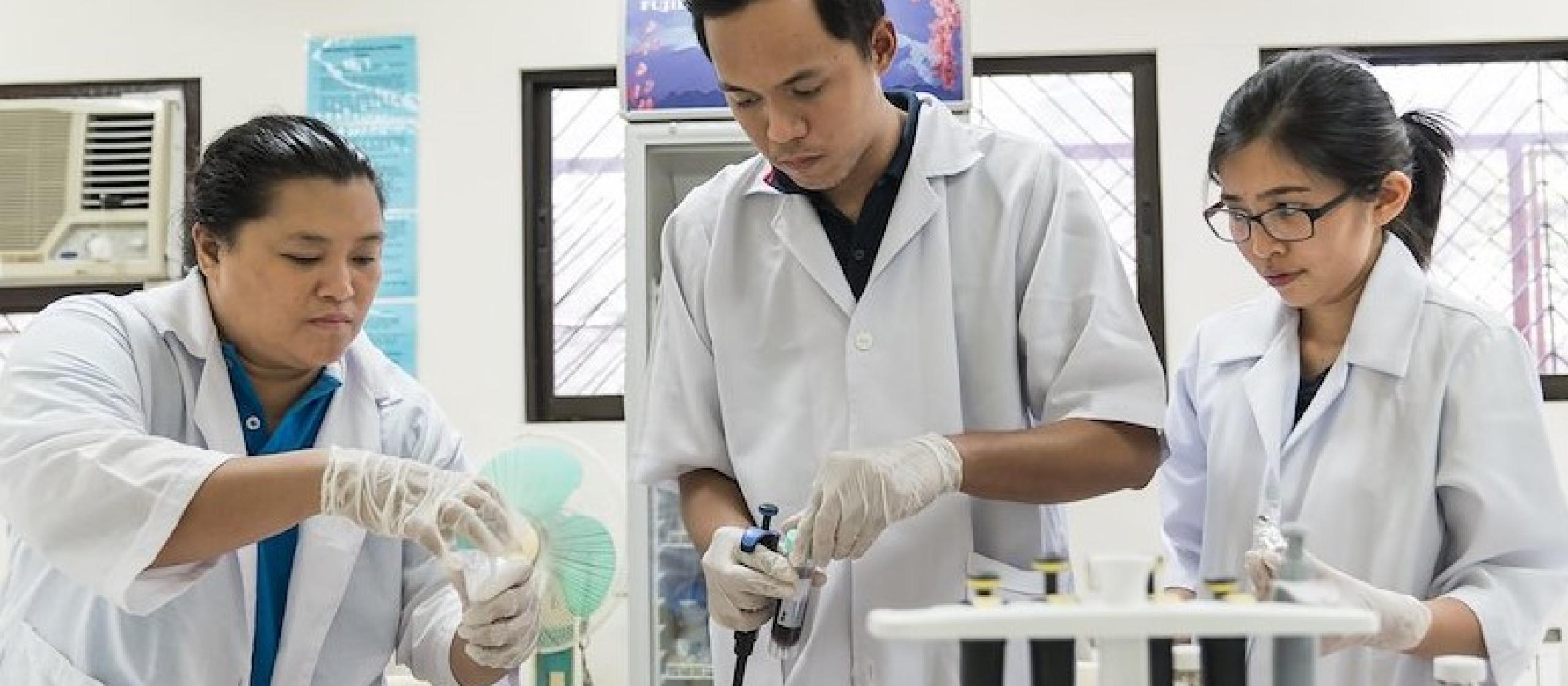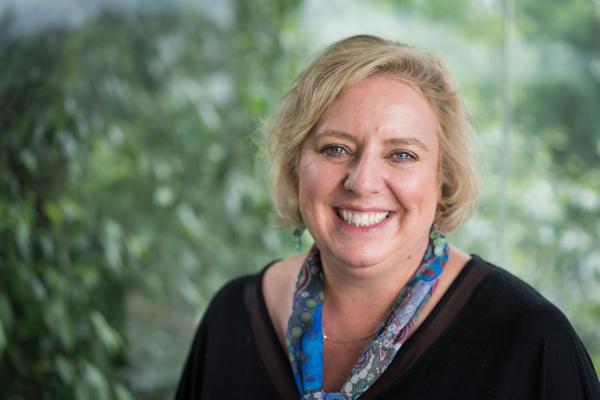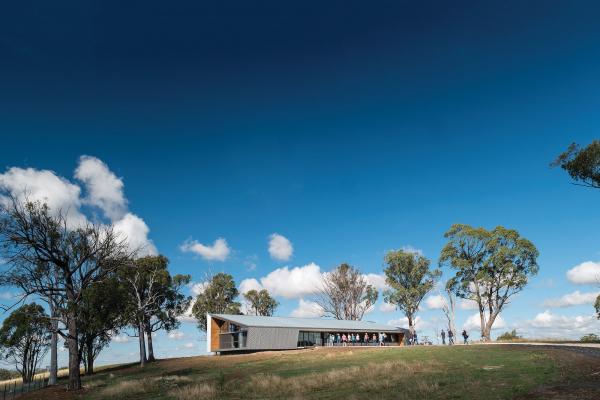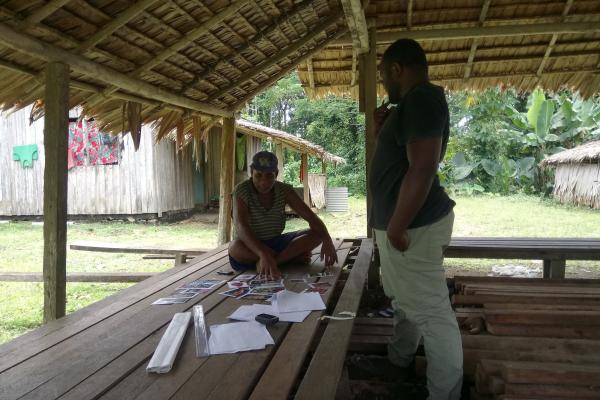- HomeHome
-
About ACIAR
- Our work
- Our people
-
Corporate information
- ACIAR Audit Committee
- Commission for International Agricultural Research
- Policy Advisory Council
- Agency reviews
- Executive remuneration disclosure
- Freedom of information (FOI)
- Gifts and benefits register
- Information publication scheme
- List of new agency files
- Contracts
- Legal services expenditure
- Privacy impact assessment register
- Commonwealth Child Safe Framework
- Benefits to Australia
- Careers
- 40 years of ACIAR
-
What we do
- Programs
- Cross-cutting areas
- Resources
- Where we work
-
Funding
- Research projects
- Fellowships
-
Scholarships
- John Allwright FellowshipScholarships to study in Australia for ACIAR partner country scientists to have Australian postgraduate qualifications
- ACIAR Pacific Agriculture Scholarships and Support and Climate Resilience Program
- Alumni Research Support Facility
- Publications
- News and Outreach
Date released
06 February 2019
Participants in the John Allwright Fellowship executive leadership (JAFel) program will undertake a tailor-made intensive blended learning course that aims to foster the development of what Eleanor Dean, ACIAR General Manager, Outreach and Capacity Building, describes as ‘balanced scientists'.
The new program, Dean says, ‘recognises feedback from senior people in our partner countries, who told us that the fellows were expected to have a broader range of skills’. Not only did they have to be accomplished scientists in their respective fields, but on their return to their home countries, they were expected to take up leadership positions.
‘We modelled the executive leadership program on some work done by the Centre for Invasive Species Solutions—they were the ones who coined the term “balanced researcher”. Following a review of our capacity building program in 2017, one of the recommendations was for a leadership course for fellows, so we put out a tender for the program.’
The University of New England (UNE) at Armidale in rural NSW has a long and successful record of delivering distance education and, as the successful tenderer, worked closely with ACIAR to tailor a suitable program. UNE Professor John Gibson is director of UNE’s Institute for Genetics and Bioinformatics. His livestock research activities, which include a variety of environmental, agricultural and social contexts ranging from developing world subsistence systems through to the intensive systems of the developed world, as well as his longstanding involvement with the Australia Awards (of which JAF is a part), make him well-placed to lead the program. Gibson, along with Rebecca Spence, who has a background in development education, has shaped the new executive leadership program.
‘What we especially liked about the UNE proposal was the fact that the JAFel program would give participants credits towards a graduate certificate in leadership qualification,’ Dean says. The program’s balance of face-to-face and online study is also suited to the needs of widely dispersed JA fellows, who are studying at universities across Australia, as far apart as Western Australia and northern Queensland.
In January, 25 JA fellows will take part in the first element of the inaugural program—10 days of intensive face-to-face learning. Spence explains, ‘The first two days will focus on themes of “leading yourself, leading teams and leading organisations”, where participants will identify and explore their own leadership styles, and ask “what leadership skills would I like to emulate?”’
The next two days will home in on practical aspects of best-practice research project management. ‘We wanted to have an emphasis on social inclusion and gender,’ Spence says, as well as broader cultural elements.
The 10 days in Armidale will also include field trips highlighting regional beef and horticultural innovation, as well as sessions on entrepreneurship.
By the end of this first element, the JA fellows will be asked to create their own leadership action plan, ensuring it is both relevant to their needs and practical—something they can implement. ‘It’s critical they can apply what they’re learning, either leading through their PhDs, or more broadly, leading into the future,’ Spence says.
The second element of the program will comprise seven online modules, which fellows must complete over the following 15 months. These modules cover off similar topics to those already studied face-to-face, Spence says. ‘However, given the fact that they will all be going back to countries which face significant challenges around food insecurity, and ACIAR leadership in this area, I have added a module on food security, which is called “leadership under duress”.’
‘What we have tried to do as much as possible is to reference ACIAR’s work on gender and social inclusion, and help them realise that, as part of the ACIAR community, fellows have access to a rich network, not only of other JA fellows, but also active researchers. There is a rich vein of knowledge around leadership in research projects, and leadership around gender, food security, poverty reduction, small-scale and intensive farming.’
Over the 15 months, there will be ongoing support for program participants, with chat forums, regular weekly catch-ups and surveys to gain feedback on the program.
The third element, Spence says, ‘is fellows coming back at the end and telling us what they’ve learned’. In a four- or five-day workshop back at Armidale, participants will present their action plans and what they have learned from the program.
Dean says in designing the program, she had some initial concern about the study load for participants, given the academic demands of their masters and PhD study. However, the feedback has been very positive. ‘They are excited to take up the opportunity, and I’m excited to see the first cohort go through,’ she says.
Two of the JA fellows in the inaugural executive leadership course are Tin May Yu Aung from Myanmar and Daykin Harohau from Solomon Islands.
The road from her birthplace, the old royal capital Mandalay, to PhD study at UNE has been a long one for Tin May Yu Aung, or Yu, as she likes to be called. The fifteenth of 17 children, Aung finished high school in 1991 with a science specialisation. In Myanmar, students entering high school must choose either a science or arts stream, and this determines what tertiary institutions they can attend. Entrance scores for university vary according to gender: in the year Yu applied, entry to medicine or engineering required scores of 405 for male students and 420 for female applicants.
‘I didn’t know anything about agriculture when I applied to the Institute of Agriculture to study for my bachelor degree,’ Aung says. ‘I hadn’t seen a paddy plant, even though rice is our staple food.’ The prospect of joining Yezin Agricultural University’s teaching staff after graduation was a strong motivation to become involved in agricultural research for Aung. She lectured in horticulture and floriculture at the university, becoming involved in ACIAR Mylive project (ASEM-2011-043), until she came to Australia to further her study.
For Aung, being a JA fellow ‘means everything’. Academically and culturally, she feels her horizons have broadened. With Australia’s multicultural mix of students, ‘I can learn about other cultures’ traditions and customs, and I have the chance to be part of the amazing Australian academic culture that is so totally different to ours. My research capacity is growing because of the well-equipped learning environment, advanced technology and qualified supervisors and advisors at UNE.’ Aung says she is looking forward to the executive leadership program to develop her skills in leadership, intrepreneurship and business, so that in turn she can foster these in future young leaders at Yezin Agricultural University on her return to Myanmar.
For Daykin Harohau, the executive leadership course will be an opportunity to build on what he describes as fairly fundamental management skills.
Harohau, the oldest of five children, lives in the province of Malaita in Solomon Islands. He has a longstanding passion for marine science, and completed his undergraduate degree in the subject at the University of the South Pacific in Fiji in 2010. Getting a job after graduation was not easy for Harohau, like many young Solomon Islanders. ‘Most of my friends couldn’t get the jobs they were trained for at university,’ he says, ‘but I was lucky’. After six months without work, he became a part-time research assistant with WorldFish in Honiara, working on a European Union–funded project on the economic valuation of coral reef ecosystem services in Solomon Islands.
In 2012, that became a full-time permanent position, including work on an ACIAR project on inland aquaculture in Solomon Islands. One thing led to another, and in June 2016 he was awarded a JAF to begin his masters at James Cook University in northern Queensland on inland aquaculture in Solomon Islands, particularly the social aspects of tilapia farming. Stocking aquaculture ponds with tilapia gives rural Solomon Islanders greater dietary diversity, as well as potential income. He has now upgraded this research to a PhD.
Harohau is looking forward to the program in 2019–20 as the bulk of his leadership experience so far has been through trial and error on the job. He confesses that when he was thrown into managing a WorldFish project out in the field early on (and later managing an office of five staff), he had very little idea of what management was all about. He has since competed a one-week Crawford Fund leadership workshop, which was a ‘real eyeopener about the skills of management’, so the JAFel program will build on that foundation.







